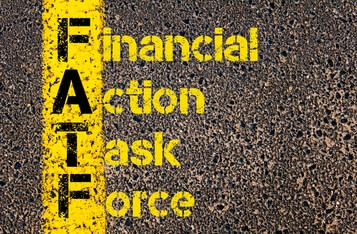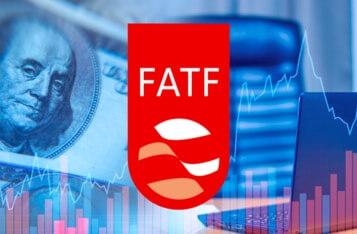Search Results for "vasps"
Exclusive: Blockpass COO, on the Significance of the FATF Travel Rule to VASPs
Personal identity is a fundamental human right according to Article 8 of the United Nation’s Convention on the Rights of the Child. Identity is crucial to a functioning society and economy, however, there are 1.1 billion people in the world that do not have proof of identity and 45% of them are among the poorest 20% around the world. For enterprises, customer data protection can be proven costly as 2.8 billion consumer data records were exposed at an estimated cost of more than $654 million in 2018.
New Travel Rule Regulations Impacting Crypto Transactions
In a recent podcast, Alice Nawfal discusses how new Travel Rule regulations are shaping the crypto industry and the compliance challenges faced by VASPs.
FATF Updates its Guidance to Service Providers to Include DeFi
The Financial Action Task Force (FATF) has updated its guidance governing Virtual Assets and Virtual Asset Service Providers (VASPs) with the inclusion of decentralized finance (DeFi).
Estonia Shuts Down Crypto Firms
Nearly 400 virtual asset service providers (VASPs) have shut down in Estonia due to enhanced Anti-Money Laundering laws. The Financial Intelligence Unit (FIU) revoked the authorizations of almost 190 firms for non-compliance. The remaining 100 active crypto firms had issues with misleading company information, including falsified professional backgrounds and copied business plans.
Taiwan's Legislature Considers Virtual Asset Management Bill to Protect Consumers
The Taiwanese Legislature is deliberating on a new Virtual Asset Management Bill aimed at fostering better consumer protection and industry oversight. The bill, seen as moderate, outlines pragmatic mandates for VASPs while leaving room for further regulatory fine-tuning, marking a significant step in Taiwan’s evolving digital asset regulatory landscape.
Paraguay Begins to Audit Local Crypto Industry to Comply with FATF Guidelines
Paraguay is looking to take its cryptocurrency industry mainstream, in light of the Financial Action Task Force’s (FATF) guidance on virtual asset service providers (VASPs) released earlier this year.
Crypto & the FATF: ING Develops Travel Rule Protocol for Tracking Crypto Transfers Ahead of FATF Plenary Meeting
The FATF has a wide range of recommendations, a total of 40 to ensure regulatory alignment between the compliance imposed on financial institutions and the regulations in its member states. The FATF Travel Rule is Recommendation 16, which has received a lot of attention from the crypto industry, especially virtual asset service providers (VASPs).
FATF Virtual Assets Guidelines for Cryptosphere Review
With the growing concern of virtual assets/cryptocurrencies being used as a medium for the financing of illegal activities, the Financial Action Task Force (FATF) issues revised guidance from time to time to combat money laundering and terrorist financing involving virtual assets (VAs) and virtual asset service providers (VASPs).
iComply on FATF Travel Rule: Cryptocurrency is Meant to be Trustless, Not Anonymous
iComply Investor Services (iComply) is a regulatory technology (Regtech) company focused on making financial markets more robust, secure, and efficient. We asked their CEO, Matthew Unger for his take on 2019 FATF Travel Rule Guidelines and find out what these recommendations really mean and how should exchanges or VASPs observe them?
Crypto & the FATF Travel Rule: FinCEN Suggests Challenges in Governance, Not Technology
The Financial Action Task Force (FATF) Travel Rule has been in the center of attention lately, which concerns crypto transactions above a certain amount must be accompanied by identifying information.The rule is an update to the existing FATF Recommendation 16, regarding cross-border and domestic wire transfers, and is intended to address the anti-money laundering (AML) and counter-terrorist financing (CFT) challenges as crypto adoption increases. The FATF Travel Rule could mean implications for virtual asset service providers (VASPs), including cryptocurrency exchanges, wallet providers, and custodians.
US Congress Encouraged to Regulate Crypto Sector Under Bank Secrecy Act
A Washington DC-based strategic advisory firm, the Financial Integrity Network (FIN), pushed the United States Congress to regulate firms in the cryptocurrency sector under the Bank Secrecy Act (BSA).
CipherTrace Unveils Crypto Predictive Risk Model to Combat Suspicious Transactions in Wake of Twitter Scam
CipherTrace, a cryptocurrency intelligence company, has introduced a predictive risk-scoring model to instantly avert money laundering of cryptocurrencies from ransomware attacks and theft.











